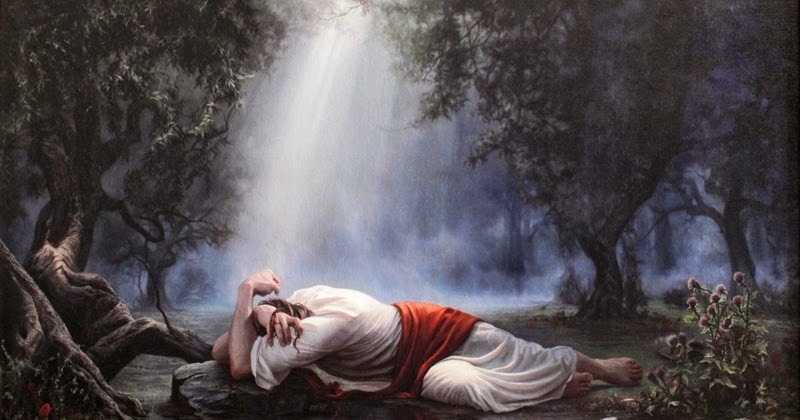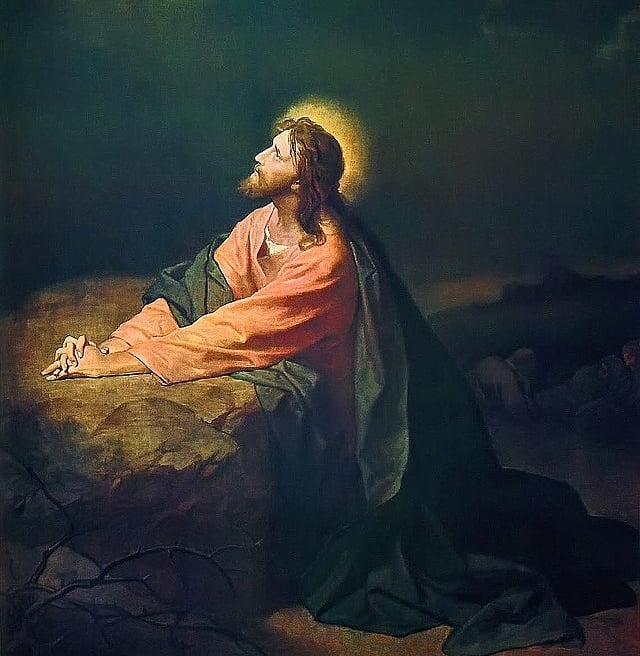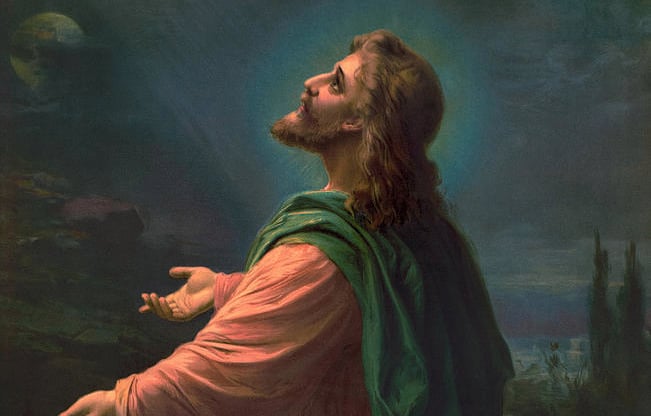If Jesus Knew the Future, Why the Garden of Gethsemane? A Look at Divine Choice and Human Struggle
Learn from Jesus's anguish in Gethsemane. Discover how to navigate suffering, embrace God's will, and find strength in obedience.
BIBLE INSIGHTSJESUS CHRIST


The Garden of Gethsemane, a place of intense agony and prayer for Jesus, presents a seemingly paradoxical situation. Knowing his impending suffering and death, why did Jesus experience such profound anguish? This exploration delves into the intersection of divine foreknowledge and human experience, revealing a powerful lesson about choice, obedience, and the nature of suffering.
I. The Foreknowledge of Jesus
The Gospels consistently portray Jesus as possessing a deep understanding of his destiny. He explicitly stated his purpose, often referring to his suffering and death. For example, in Matthew 16:21 (KJV), he says, "From that time forth began Jesus to shew unto his disciples, how that he must go unto Jerusalem, and suffer many things of the elders and chief priests and scribes, and be killed, and be raised again the third day." This foreknowledge wasn't a mere prediction; it was an integral part of his divine mission.


Source: Google Image
II. The Agony in Gethsemane
Despite his foreknowledge, Jesus's anguish in Gethsemane was undeniably real. Luke 22:44 (KJV) describes his agony: "And being in an agony he prayed more earnestly: and his sweat was as it were great drops of blood falling down to the ground." This intense emotional and physical suffering isn't easily reconciled with the idea of a God who knew exactly what was coming. It challenges our understanding of divinity and humanity's interwoven nature.
III. The Weight of Choice and Obedience
The paradox of Gethsemane isn't about Jesus not knowing his fate, but about his choice to accept it. While fully aware of the horrific suffering awaiting him, Jesus chose to proceed with God's plan. His prayer in Gethsemane, "Nevertheless not my will, but thine, be done" (Luke 22:42 KJV), highlights this conscious decision to submit to the Father's will, even in the face of unimaginable pain. This wasn't passive acceptance; it was an active, agonizing choice rooted in unwavering obedience.


Source: Google Image
IV. Humanity Shared in Divinity
Jesus, though fully God, also fully embraced his humanity. His experience in Gethsemane demonstrates that even with divine foreknowledge, the human experience of suffering is profound and real. His agony wasn't a sign of weakness but a testament to his complete identification with humanity, sharing our struggles and vulnerabilities. It underscores the depth of his empathy and compassion.
Partner with us by using our King James Bible app - together we can spread the truth of God's love.
V. The Significance of Suffering
The suffering in Gethsemane wasn't an accident or a mistake; it was a necessary part of Jesus's redemptive work. His willingness to endure such pain demonstrates the ultimate sacrifice necessary for salvation.


Hebrews 2:10 (KJV) states, "For it became him, for whom are all things, and by whom are all things, in bringing many sons unto glory, to make the captain of their salvation perfect through sufferings." His suffering became the path to our redemption.
VI. Lessons from Gethsemane
The Garden of Gethsemane offers profound lessons for believers today. It reminds us that even with faith and trust in God, we will still face difficult choices and experience suffering. It underscores the importance of prayer, surrender, and obedience to God's will, even when the path is arduous. It shows us the power of human vulnerability and the depth of God's love, which embraces our struggles and transforms our suffering into something redemptive. The paradox of Gethsemane reminds us of the profound intersection of divine power and human experience, highlighting the very essence of Christ's sacrifice.
Source: Google Image
